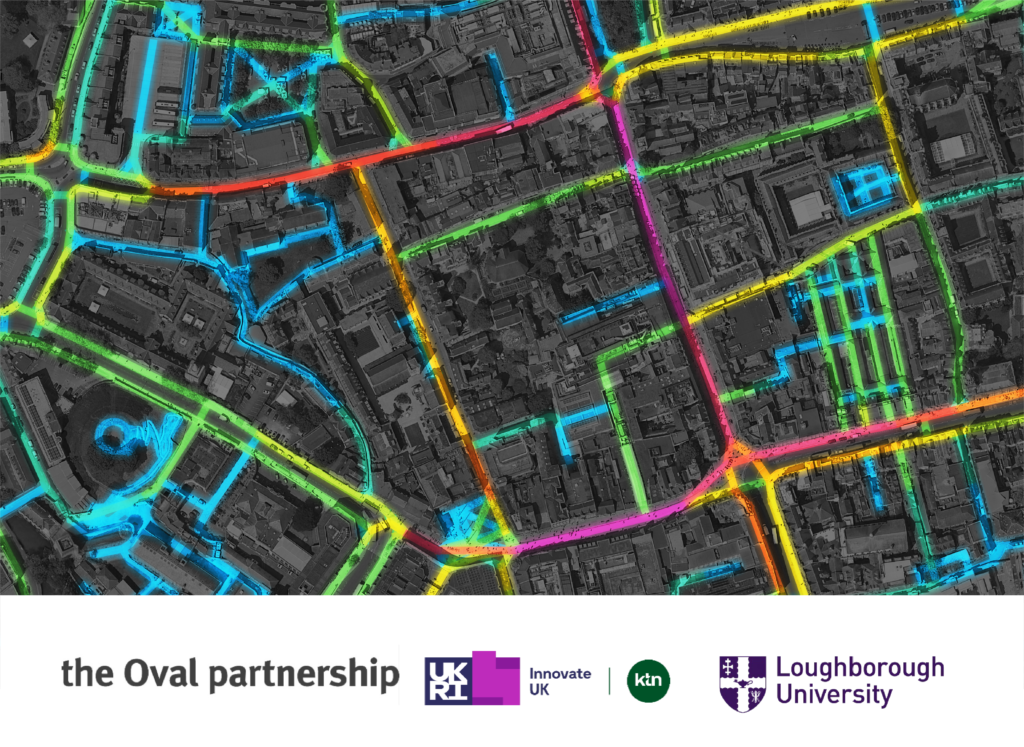Research collaboration
Wedderburn Transport Planning engages in a range of cross-disciplinary Research & Development activities with academic institutions and partner companies.
Knowledge Transfer Partnership
We have recently started a collaboration with Loughborough University and the Oval Partnership on a Knowledge Transfer Partnership project to develop a predictive pedestrian forecasting tool to enable planning and design services for urban regeneration, master planning and to facilitate community planning engagement. Knowledge Transfer Partnerships (KTPs) aim to help businesses improve their competitiveness and productivity through the better use of knowledge, technology and skills within the UK knowledge base. Together with the Oval Partnership, we currently use footfall analytics to generate a richer and more engaging experience in mixed-use urbanscale projects. Their partnership with Loughborough University brings together leading researchers in the fields of transport planning, urban design and artificial intelligence to assist in the development of a new generation of cutting-edge, rapid, evidence-based tools.


SDNA For Rhino
Together with several academic institutions, we supported Cardiff University in developing a version of the SDNA network analysis software for Rhino. This will facilitate enhanced spatial analysis and visualisation of complex multi-level urban environments. We provided valuable input from an end-user perspective and real-life case studies for testing.
Visibility Analysis For Retail
Visibility graph analysis has long been employed in the spatial analysis toolbox to understand human behaviour and routeing decisions. In order to respond to questions from retail-focussed architects, we adapted this form of analysis to develop a suite of frontage visibility tools.


Environmental, Social And Governance (ESG) Indicators
One focus of our research and development efforts is alignment with ESG reporting frameworks in the property sector. We are developing meaningful spatial and transport indicators of social integration, accessibility by sustainable transport modes and transport-related carbon emissions.

